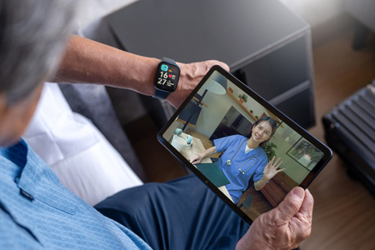Japan's Adoption Of DCTs Is Slow But Steady
By Takuma Matsunaga, consultant in clinical trial digital transformation, Japan

Japan is at a turning point in adopting decentralized clinical trials (DCTs). While global momentum accelerates, Japanese healthcare institutions face unique structural and operational hurdles. This article explores the hidden barriers — and the emerging solutions — through the eyes of those on the ground.
Understanding Japan’s Structural And Systemic Barriers To DCT Adoption
Globally, DCT adoption accelerated during the COVID-19 pandemic. Regulatory bodies like the FDA and EMA issued supportive guidances, and many countries have reported benefits such as improved trial efficiency and greater patient access. Pharmaceutical companies have embraced components like eConsent and remote monitoring, contributing to a growing number of case studies.
In Japan, however, DCT adoption remains limited. A 2023 Japan Pharmaceutical Manufacturers Association (JPMA) survey found that only 18.6% of companies had implemented any form of DCT — up from 11.3% in 2021, but still relatively low. Only 9.3% had used telemedicine, suggesting that most companies have yet to incorporate remote consultations. In contrast, tools like ePRO/eCOA are used by around 88%, as they align more easily with traditional trial models.
This gap implies that while ePRO systems are relatively simple to deploy, options such as telemedicine and home nursing face greater institutional and operational challenges. Still, industry interest is rising, and over half of the companies surveyed are planning or considering DCT adoption. Reflecting this momentum, pilot programs — ranging from fully remote trials to hybrid trials — are gradually taking shape across Japan1.
Alignment With Japanese Regulatory And Ethical Frameworks
Implementing DCTs in Japan requires alignment with existing healthcare regulations and GCP standards. Japan has traditionally emphasized in-person consent and direct investigator oversight to protect participant safety. As such, DCTs introduce procedures not previously anticipated in the country’s trial framework.
In 2023, the Ministry of Health, Labour and Welfare (MHLW) issued a guidance formally permitting eConsent in clinical trials2. While this enabled technical implementation, many institutions still rely on paper-based SOPs, making system updates and workflow changes necessary and time-consuming.
Several regulatory concerns remain, including ensuring the integrity of remotely collected data, handling wearable devices, and encouraging greater use of centralized IRBs. Japan currently lacks comprehensive DCT guidance. However, new policy documents released in 2024 offer direction on the use of remotely collected data in trials3. Additionally, discussions are underway to allow investigational drugs to be dispensed through contracted “partner pharmacies4.”
DCT Implementation On The Front Lines
Challenges In IT Infrastructure And Data Management
A strong IT foundation is critical for effective DCT implementation, yet many healthcare institutions in Japan still face significant shortcomings. Engaging patients remotely requires new tools like video conferencing and eConsent platforms, and initial setup and integration with existing systems can be complex and time-consuming.
For eConsent, institutions must assess integration with electronic data capture (EDC) systems, select a signature method, prepare patient devices, and configure necessary hardware. They also need to develop internal policies for securely storing and managing electronic documents — efforts that require coordination across departments.
Remote monitoring and eSource usage demand secure protocols for sharing electronic medical record (EMR) data with external stakeholders, often requiring alignment with internal IT and health information teams. When using wearable devices, data quality must be verified and integration into trial data sets carefully planned.
Policy updates and staff training are also essential. Introducing tools alone isn't enough — systems must align with daily clinical workflows. To support widespread DCT adoption, Japan may need national infrastructure support, such as subsidies for cloud services and programs to strengthen digital readiness.
Challenges In Patient Recruitment
One major advantage of DCT is its ability to expand patient access beyond geographic limitations. However, achieving this requires new recruitment approaches. Traditional trials in Japan have relied on physicians at participating sites to identify eligible patients. DCTs, in contrast, call for broader outreach through online ads, patient databases, and referrals from local providers.
A JPMA survey found that over half of pharmaceutical companies have used web-based recruitment. Still, many face challenges in defining suitable eligibility criteria and generating effective outreach. For rare or niche conditions, targeted ads or social media may be useful, but these must comply with the Pharmaceuticals and Medical Devices Act, which aims to prevent exaggerated claims. This creates a need for alignment with legal and regulatory teams, which can be difficult for teams lacking relevant expertise.
Another barrier is low public awareness of clinical trials in Japan. In response, some organizations are partnering with patient groups to improve visibility and trust. Recruitment also involves back-end processes — handling inquiries, sharing information, and coordinating with primary care doctors. A well-integrated workflow from outreach to enrollment is essential.
To address these issues, hybrid models are emerging. For instance, regional healthcare networks are used to introduce patients to DCTs through their regular physicians, while informed consent is handled remotely. This approach allows patients to learn about trials through familiar providers and consider participation without visiting large hospitals. Ultimately, this model reduces burden, improves access, and fosters cross-institution collaboration — helping create a more inclusive and patient-centered research ecosystem.
Increased Burden On Investigators And Clinical Research Coordinators
A major challenge in DCT implementation is the increased workload for frontline clinical staff. Without proper support, this burden may discourage institutions from participating. Remote operations and multi-site coordination introduce new tasks that require extra time and effort from investigators and CRCs. For example, remote consultations often demand more preparation than on-site visits. Staff must set up video calls, check equipment, assist with connectivity, and document interactions, adding complexity to routine workflows. Follow-up tasks typically handled immediately after in-person visits often require extra coordination via email or phone in remote settings.
Investigators also report concerns about ensuring patient safety during telemedicine visits. To avoid missing adverse events, they may need to increase phone check-ins or strengthen communication with local physicians, further adding to their responsibilities.
Digital tools present additional challenges. Staff may need to teach elderly patients how to use tablets or apps and follow up on missed inputs. In many cases, this effort exceeds that of traditional paper-based systems. Many institutions have raised concerns: the added burden outweighs perceived benefits; more compensation or staff is needed; and simple, user-friendly systems are crucial. If providers feel overwhelmed, DCT adoption may stall. It's therefore essential to design operational models that ease staff workload and promote collaboration among stakeholders to distribute tasks effectively and sustainably.
In summary, the spread of DCT represents not just a procedural shift but a broader digital transformation (DX) of clinical trial infrastructure. It calls for a transition to a more interdisciplinary, technology-driven model of trial execution across Japan’s healthcare ecosystem.
Future Direction For DCT Adoption In Japan
Accelerating DCT adoption in Japan requires transformation on three fronts: regulatory, technological, and cultural. Regulatory clarity is urgently needed to support remote trials, including updated ordinances and guidance. Wider use of centralized IRBs is also important. Where current laws create barriers, revisions should be considered to enable flexible and safe operations.
On the technology side, integration between clinical systems and trial platforms is essential. This includes standardizing interfaces between EMRs and trial systems, building shared tools like eConsent, and ensuring systems are intuitive for investigators and patients. Advancing DX will be key to scaling DCT.
Culturally, mindset changes are needed. Training and sharing DCT success stories can ease healthcare provider concerns. For patients, clear messaging around safety and benefits is critical to build trust. Looking ahead, collaboration across government, industry, academia, and the public is vital. Japan’s regional healthcare networks can be leveraged to build a more inclusive and globally competitive trial environment. DCTs offer a chance to make trials more patient-centered and internationally aligned. With continued dialogue and shared innovation, DCT can become a national standard, delivering real value to patients and providers.
References:
- Japan Pharmaceutical Manufacturers Association (JPMA). “2023 Survey on the Status and Challenges of Decentralized Clinical Trials (DCT) in Drug Development.” Published Oct, 2024: https://www.jpma.or.jp/information/evaluation/results/allotment/q83i5d0000006ia3-att/DS_202410_DCT.pdf
- Japan MHLW “Guidelines on Considerations for the Use of Electronic Methods in Informed Consent for Clinical Trials and Post-Marketing Clinical Studies.” Published May 10, 2023:
https://www.pmda.go.jp/files/000251967.pdf - Japan MHLW “Guidelines on Considerations for the Evaluation of Efficacy and Safety Using Electronically Collected Data via Information and Communication Technology in Clinical Trials and Post-Marketing Clinical Studies.” Published Sep 20, 2024:
https://www.pmda.go.jp/files/000270881.pdf - Yakuji Nippo “MHLW Considers Allowing Investigational Drugs to Be Dispensed at Pharmacies as Part of GCP Revision.” Published March 26, 2025: https://www.yakuji.co.jp/entry116825.html
About The Author:
 Takuma Matsunaga has over 10 years of experience in the healthcare and clinical research industry, with involvement in 50+ clinical trials across traditional, hybrid, and fully decentralized models. Actively involved in advancing DCT in Japan, he spearheads business growth and digital transformation of clinical trials at MICIN, Inc. He also supports the tele-oncology committee at the Japanese Telemedicine Society, helping to expand remote clinical trial capabilities. A frequent speaker at academic conferences and industry events, he shares insights on DCT implementation, regulatory challenges, and best practices. His vision is to elevate Japan’s DCT ecosystem to global standards by integrating international innovations into the healthcare landscape.
Takuma Matsunaga has over 10 years of experience in the healthcare and clinical research industry, with involvement in 50+ clinical trials across traditional, hybrid, and fully decentralized models. Actively involved in advancing DCT in Japan, he spearheads business growth and digital transformation of clinical trials at MICIN, Inc. He also supports the tele-oncology committee at the Japanese Telemedicine Society, helping to expand remote clinical trial capabilities. A frequent speaker at academic conferences and industry events, he shares insights on DCT implementation, regulatory challenges, and best practices. His vision is to elevate Japan’s DCT ecosystem to global standards by integrating international innovations into the healthcare landscape.
